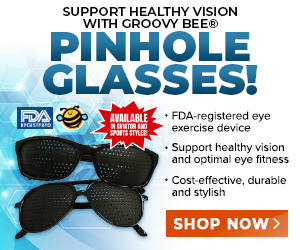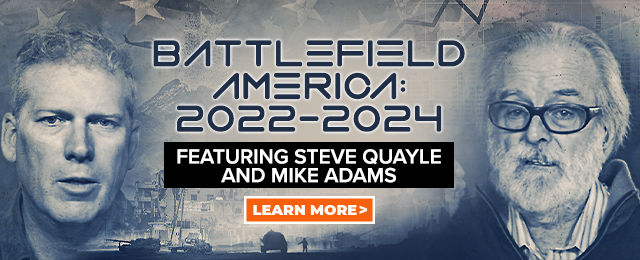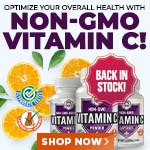
Debating Pescatarianism: To Fish or Not to Fish for a Protein Source
Thursday, July 31, 2008 by: Mary Sichi
Tags: nutrition, health news, Natural News
- Chemtrails unveiled: How the CIA and Big Business are manipulating the weather for profit
- Israeli lobbyists boast of controlling US national security policy in leaked AIPAC audio
- Mysterious underwater pyramid off Japan could rewrite ancient history
- Tulsi Gabbard leads charge against the Biden regime’s global censorship of the 'Disinformation Dozen'
- Fauci is back in the limelight, and he’s busy promoting a future COVID or FLU pandemic
- Geoengineers forced into secrecy as public backlash grows: How climate elites are manipulating populations to accept geoengineering experiments
- Analysis: The coming economic collapse, a mass uprising and Trump's three secret weapons to halt the growing revolt
- How to live without electricity: A practical guide for survival and preparedness
- Pfizer's RSV vaccine linked to preterm births as drug giant CONCEALED RISKS from pregnant women in unethical clinical trials
- Shedding light on the dark side of MMR vaccines: How vaccinated individuals SPREAD MEASLES & put the vulnerable at risk
- Aerosolized bioweapons? Strange “diploid biomasses” falling out of the sky in Florida captured under the microscope
- Common household chemicals linked to America's depression epidemic
- The HEART-HEALING power of SEVEN Mediterranean plants
- Kiss Your Genetic Privacy Good-Bye! 23andMe Gets Green Light to Sell Your Intimate Genetic Details to Anyone They Want
- Widespread social and economic unrest: Steve Quayle issues urgent financial warning of imminent asset collapse in new interview with Mike Adams
- Tulsi Gabbard takes aim at censorship: Justice for the ‘Disinformation Dozen’
- U.S. lawmakers investigate Meta over alleged China collaboration
- Mike Adams releases country western hit single: Goin’ Back in Time is Comin’ Home
- Aerosolized bioweapons? Strange “diploid biomasses” falling out of the sky in Florida captured under the microscope
- Widespread social and economic unrest: Steve Quayle issues urgent financial warning of imminent asset collapse in new interview with Mike Adams
- CLOT SHOT PLANDEMIC UNFOLDING: Fibrous, rubbery clots caused by covid injections have prion-like seeding activity
- Analysis: The coming economic collapse, a mass uprising and Trump's three secret weapons to halt the growing revolt
- Kiss Your Genetic Privacy Good-Bye! 23andMe Gets Green Light to Sell Your Intimate Genetic Details to Anyone They Want
- Tulsi Gabbard leads charge against the Biden regime’s global censorship of the 'Disinformation Dozen'
- Mike Adams releases country western hit single: Goin’ Back in Time is Comin’ Home
- DEATH by VACCINE or face PRISON time: Canadian Freedom Convoy leaders CONVICTED for protesting forced vaccination during the Covid Plandemic
- Fauci is back in the limelight, and he’s busy promoting a future COVID or FLU pandemic
- How Israeli military-connected corporations are secretly controlling your online privacy
- European Court of Justice: Healthcare professionals who promoted or administered COVID-19 vaccines are CRIMINALLY LIABLE for any harm caused
- Defunding DEADLY mRNA jabs: Government funding for mRNA technology being scrutinized and sidelined until proven "safe and effective" for real
- Tulsi Gabbard takes aim at censorship: Justice for the ‘Disinformation Dozen’
- Federal employees whine over DOGE's new directive requiring them to do a 5-point summary of weekly accomplishments
- U.S. approves new Russian ambassador as diplomatic thaw continues
- I Want My Bailout Money – new song and music video released by Mike Adams
- Trump administration poised to overhaul crypto regulations with new SEC leadership
- I Want My Bailout Money – new song released by Mike Adams
- Newly released JFK files reveal Pentagon's role in creating Lyme disease and covid in the same lab
- Mike Adams releases country western hit single: Goin’ Back in Time is Comin’ Home
- Analysis: The coming economic collapse, a mass uprising and Trump's three secret weapons to halt the growing revolt
- MEDICAL BOMBSHELL: FDA admits Covid mRNA 'Vaccines' CAUSE CANCER
- Dr. Mike Yeadon releases 15-minute testimony - WATCH - about genocidal intent of COVID “vaccines”
- Trump reverses course on Gaza plan, says “nobody is expelling Palestinians”
- 5 Simple steps to boost your brainpower: How to strengthen executive function in a distracted world
- The Health Ranger releases “Vaccine Zombie” song and music video, using AI-animated zombies for the music video
- California's social media censorship law struck down: A victory for free speech or a threat to online safety?
- Rep. Nancy Mace introduces bill to ban biological males from female facilities on federal property
- EPA advisor admits the agency is funneling billions to climate groups ahead of Trump’s return to White House
- Survival 101: Effective EMF blocking techniques
- Aerosolized bioweapons? Strange “diploid biomasses” falling out of the sky in Florida captured under the microscope
- OpenAI whistleblower who dissented against how the company trained ChatGPT found dead
- Trump Administration cuts 2,000 USAID jobs, places most employees on leave in sweeping reform effort
- A lack of integrity in Academia: Harvard professor found GUILTY of fraudulent research to promote CRT theory
- Sugarcane extract superior to cholesterol-lowering drugs?
- RFK Jr.'s SSRI antidepressant investigation sparks liberal meltdown, exposes Big Pharma's dangerous game
- Red Cross issues warning to stop blood plasma donations from vaccinated people
- Scientists confirm: GENIUS brain function can be spontaneously unleashed in humans without any apparent cause
- EPA advisor admits the agency is funneling billions to climate groups ahead of Trump’s return to White House
- HYSSOP: What research reveals about the health benefits of this ancient holy herb
- Two containers with completed ballots fall out of truck in Florida
- Fully vaccinated about to see “tsunami” of illness and death, warns virologist
- Global leaders unite to clamp down on “misinformation” with UN-backed Cascais Declaration
- Newly released JFK files reveal Pentagon's role in creating Lyme disease and covid in the same lab
- BREAKING: 2025 NDAA authorizes mandatory military draft of WOMEN across America… as Pentagon pursues global NUCLEAR war with both Russia and China at the same time
- Michael Yon warns of a ZIONIST TAKEOVER in Trump’s second administration
- Ozempic and Wegovy weight loss drugs are injectable LIZARD VENOM PEPTIDES that may unleash a devastating wave of organ failure… side effects align with symptoms of SNAKE BITES
- The Health Ranger releases “Vaccine Zombie” song and music video, using AI-animated zombies for the music video
- BOMBSHELL: DNA testing kits are a SCAM to develop ethnic-specific bioweapons
- Israeli soldiers accused of even more torture and abuse in the West Bank
- These 13 countries just signed an agreement to engineer a global FAMINE by destroying food supply
- Mike Adams releases country western hit single: Goin’ Back in Time is Comin’ Home
- NASA admits that climate change occurs because of changes in Earth’s solar orbit, and NOT because of SUVs and fossil fuels
- RFK Jr. clears key hurdle: Sen. Susan Collins backs controversial HHS nominee, signaling a new era for health policy
When people become truly aware of the deplorable conditions these animals live in before they are slaughtered, as well as the cruel methods of slaughter employed in the name of efficiency, they often feel that it is impossible to honestly justify continued participation in such a system. Some of the other reasons for choosing to remove beef, pork, and chicken from one's diet are discussed below.
Health Benefits
Many of the health benefits associated with a vegetarian diet are also obtainable with a pescetarian diet, as it is the absence of meat from commercially-produced livestock (with its high-fat content and chemical additives such as hormones and antibiotics), along with the consumption of nutrient-rich legumes and vegetables, that confers these benefits. Plant-based diets provide protection against numerous diseases, including the three biggest killers in the U.S.: heart disease, cancer, and strokes. According to the American Dietetic Association, vegetarians have "lower rates of death from ischemic heart disease; ...lower blood cholesterol levels, lower blood pressure, and lower rates of hypertension, type 2 diabetes, and prostate and colon cancer" and are less likely than meat-eaters to be obese. A fair argument can be made that these benefits can also be realized by eating a pescetarian diet.
In addition to being a good source of protein, fish are an excellent source of omega-3 fatty acids (DHA and EPA), which have been found to be helpful in the treatment and prevention of many diseases, including cardiovascular disease, high blood pressure and rheumatoid arthritis. Results from several studies have suggested that eating fish or taking fish oil supplements in certain amounts can lower triglycerides, slow the buildup of atherosclerotic plaques (hardening of the arteries), lower blood pressure slightly, as well as reduce the risk of death, heart attack, dangerous abnormal heart rhythms, and strokes in people with known heart disease. Consumption of fish oil by pregnant women has also been found to be beneficial to the development of their infant's eyes and brains.
There are however, other health concerns associated with eating fish, resulting from environmental pollution, that must be weighed against the benefits of including fish in a plant-based (or any) diet. These serious concerns are discussed in the latter half of this article.
Environmental Benefits
Following a pescetarian diet can also contribute to a healthier planet. For one thing, raising farm animals for food is a very inefficient use of resources compared to the production of vegetables. Currently, more than 70 percent of the grains and cereals grown are fed to farmed animals, and almost all of those calories go into simply keeping the animals alive, not into making them grow. Only a small fraction of the calories consumed by farmed livestock are actually converted into the meat that people eat. Calorie for calorie, it is much more efficient to produce vegetables. In addition to food productivity, demand for meat from commercially-produced livestock has had a negative impact on many other environmental areas, including deforestation, water supply, water pollution, energy consumption, global warming, and biodiversity.
According to a 2006 report by the United Nations, the devastation caused by the meat industry is "one of the top two or three most significant contributors to the most serious environmental problems, at every scale from local to global. The findings of this report suggest that it should be a major policy focus when dealing with problems of land degradation, climate change and air pollution, water shortage and water pollution and loss of biodiversity. Livestock's contribution to environmental problems is on a massive scale..."
Simply put, it makes no sense to waste so many of our precious resources to inefficiently produce a less-healthy food source, especially in our current crisis of increased food prices and disastrous food shortages around the world.
A Step on the Way to Vegetarianism
When I decided to switch to a pescetarian diet, one of my goals was to use it as a stepping stone towards giving up all meat, sort of a gateway stage to vegetarianism. Since I was just learning to cook and prepare dishes using mainly vegetables, I wanted to be sure I still had enough protein and other essential nutrients in my diet so that I would be successful in removing beef, chicken, and pork. Others may also find this a useful step in their journey to becoming vegetarian or vegan. In the words of a practicing vegan, discussing veganism, "It's like vegetarianism, it's a broad church. People often come to it in stages."
Problems with Fish Consumption
Including fish in your diet also comes with the risk of consuming the metals and industrial chemicals that can build up in these animals, especially those at the top of the aquatic food chain. One of the harmful toxins found in fish is mercury, which occurs naturally in the environment and can also be released into the air through industrial pollution. Mercury falls from the air and can accumulate in streams and oceans where it is turned into methylmercury, which is the most harmful type of mercury. Mercury can affect the immune system, alter genetic and enzyme systems, and damage the nervous system, including coordination and the senses of touch, taste, and sight. Methylmercury is particularly damaging to developing embryos, which are five to ten times more sensitive than adults.
In addition to mercury, most fish also contain some levels of PCBs in their system. PCBs, or poly-carbonated biphenyls, are made up of synthetic and organic chemicals. PCBs are used in hundreds of different commercial and industrial applications, and they pollute our air, soil, and waterways.
PCBs are also particularly bad for your health. They have been associated with disorders of the immune system and neurological system. PCBs are especially harmful for pregnant women. They have been associated with a number of fetal development problems including:
* learning disorders
* slowed mental development
* reduced birth weight
* neurological defects
While children, pregnant women, and those who may become pregnant are at the most risk for suffering negative effects of these environmental toxins, studies have shown unhealthy levels in others as well, and the general population is advised to be careful about which and how much fish they eat. Many websites offer mercury calculators, which allow you to estimate how much mercury your current diet contains.
Fish that tend to be low in mercury and PCBs include:
* shrimp
* canned tuna (chunk light)
* salmon (wild or canned)
* catfish
Ethical Concerns
Another set of considerations includes the question of whether fish should be killed for our consumption and the concern for the ethical treatment of the animals themselves. With respect to the first question, vegetarians draw no distinction between fish and other animals such as mammals and birds. Others, including some pescetarians, believe it is ethical to kill and consume animals as long as respect and care is shown for the animal throughout its life and slaughter. While there is much debate about whether fish "feel" pain, it makes sense to apply the same ethical guidelines when considering the living conditions and methods of slaughter of these animals as you would for any other living creature. In general, consuming seafood that is wild caught avoids some of the issues associated with fish raised in farms in terms of living conditions, but this is an area that calls for more education and awareness.
Ultimately, it is incumbent upon individuals to gather sufficient evidence and think deeply about the effects their food choices have on their own health, the welfare of animals, and the health of the entire planet.
The insightful naturalist Henry David Thoreau had the following to say about the issue: "Whatever my own practice may be, I have no doubt that it is a part of the destiny of the human race, in its gradual improvement, to leave off eating animals..."
There are numerous reputable sources of information available on the internet and in published materials about the health benefits and ethical issues involved in pescetarian and vegetarian diets. The specific references used for this article are listed below.
American Dietetic Association: (http://www.eatright.org/cps/rde/xchg/ada/hs....)
American Heart Association publication: Fish Consumption, Fish Oil, Omega-3 Fatty Acids, and Cardiovascular Disease: (http://circ.ahajournals.org/cgi/content/full...)
Ann Mangels, Virginia Messina, and Vesanto Melina, "Position of the American Dietetic Association and Dietitians of Canada: Vegetarian Diets," Journal of the American Dietetic Association, Jun. 2003, pp. 748-65.
Environmental Defense Fund website: (http://www.edf.org/page.cfm?tagID=1521)
EPA fact sheets on PCBs:
(http://fn.cfs.purdue.edu/fish4health/HealthR...)
(http://www.epa.gov/waterscience/fish/pcb99.h...)
Henry David Thoreau, Walden, Everyman, 1910
Mayo Clinic Report: Omega-3 fatty acids, fish oil, alpha-linolenic acid: (http://www.mayoclinic.com/health/fish-oil/NS...)
Meat and the Environment: (http://www.goveg.com/environment.asp)
H. Steinfeld, P. Gerber, T. Wassenaar, V. Castel, M. Rosales, and C. de Haan, "Livestock's Long Shadow: Environmental Issues and Options," Livestock, Environment and Development (2006).
Source of vegan quote: Daily Mail (London), August 18, 1992: (http://www.wordspy.com/words/pescetarian.asp)
USA Today (Society for the Advancement of Education), August, 2004 article: Global impact of meat consumption: (http://findarticles.com/p/articles/mi_m1272/...)
About the author
Mary Sichi is a research analyst in the field of psychological testing, and is currently considering making the leap from pescetarian to vegetarian, motivated by what she learned while researching this article.Nutrition at FETCH.news
Get independent news alerts on natural cures, food lab tests, cannabis medicine, science, robotics, drones, privacy and more.
Take Action: Support Natural News by linking to this article from your website
Permalink to this article:
Embed article link: (copy HTML code below):
Reprinting this article:
Non-commercial use OK, cite NaturalNews.com with clickable link.
Follow Natural News on Facebook, Twitter, Google Plus, and Pinterest
Science News & Studies
Medicine News and Information
Food News & Studies
Health News & Studies
Herbs News & Information
Pollution News & Studies
Cancer News & Studies
Climate News & Studies
Survival News & Information
Gear News & Information
News covering technology, stocks, hackers, and more



"Big Tech and mainstream media are constantly trying to silence the independent voices that dare to bring you the truth about toxic food ingredients, dangerous medications and the failed, fraudulent science of the profit-driven medical establishment.
Email is one of the best ways to make sure you stay informed, without the censorship of the tech giants (Google, Apple, Facebook, Twitter, YouTube, etc.). Stay informed and you'll even likely learn information that may help save your own life."
–The Health Ranger, Mike Adams












































